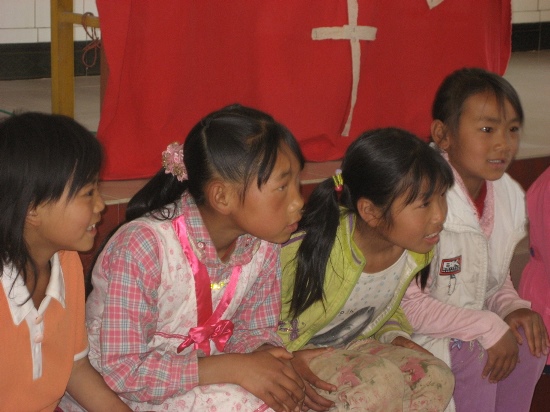The Future of the Church in China: Why China’s House Churches will Prevail

When we attempted to purchase these books, the lady in charge of the store, the wife of a TSPM pastor, immediately told my friend that Bishop Ding’s book was not a good book and that he should not buy it. She proudly indicated that although the authorities forced them to put the book on the shelves and sell it, they had not sold any copies in the last month. In fact, she said that they had only sold a few copies in the past year. This earnest lady continued by explaining how she always warns unsuspecting believers that they should not buy this book for it contains many errors and false teaching. I responded by noting that my friend was a researcher and merely interested in Bishop Ding’s book for academic purposes. The lady in charge shrugged and indicated that this was acceptable. She made it clear, however, that she did not want new believers to be confused or to think badly of their bookstore because of Ding’s book.
This encounter illustrates how out of touch Bishop Ding was (he died in 2012) and his theology is with mainstream Christianity in China, even within the TSPM. However, it also illustrates the theological tensions that exist within the TSPM, and reminds us that church leaders are often forced to promote ideas that they find harmful or dangerous.
Not long after this incident I bumped into a good friend of mine who happens to be a TSPM minister and leader. He described how he and other local TSPM leaders were supposed to promote “Bishop Ding Thought.” Thus, a local gathering of TSPM ministers in the province had been arranged. With a wink, however, he told me that they would not be featuring Bishop Ding’s theological agenda; rather, they would highlight other more edifying themes.
TSPM pastors often have to serve under leaders and instructions that are rooted in a non-Christian, Marxist view of the world.
The call in TSPM circles to embrace a theology more amenable to the party line is in reality an attempt to steer Chinese believers away from their own conservative, Evangelical (and Pentecostal) roots and towards Western liberal thought. In other words, the liberal theology espoused by TSPM leaders like Bishop Ding is far from indigenous. It is rather an attempt to impose unvarnished Protestant liberal thought from the West on the Chinese masses. Given the fact that China’s ruling Communist Party has borrowed heavily from Western thinkers such as Marx, Lenin, and Stalin, this fact should not surprise us. Nevertheless, this deviation from the strong, historical underpinnings and ethos of Chinese Christianity in lieu of advocacy of perspectives appropriated from the West is striking. The fact that these liberal theological views are largely alien to the Chinese context (both in terms of its history and culture) perhaps explains why they have not been readily accepted by the vast majority of the believers, even in the TSPM churches.
I conclude with one final example of the theological dissonance one finds in TSPM settings. In the summer of 2011 a friend, let’s call him Brother Wang, told me that an urban TSPM church would be hosting a preaching competition. Brother Wang at that time was serving as a member of the church’s ministerial staff. Brother Wang was very excited about the preaching competition. This would be the first of its kind in our area. Christians from all over the province were preparing to come and participate in the preaching competition. A panel of judges, including the church’s pastor and other church leaders, would award prizes. Four young men from the local church planned to participate, including Brother Wang, as well as many others from distant parts of the province.
Later, however, Brother Wang told me that he was disappointed. He had worked hard on his sermon, “My Hope is the Second Coming of Jesus.” When the local pastor heard the title of his sermon, he told Brother Wang that he should preach on another topic. The pastor said that although he did not have a problem with this topic, there would be a number of government officials in attendance. He indicated that many would find this topic problematic and thus it would inevitably have a negative impact on the judges. Brother Wang was clearly surprised by this turn of events and felt badly. He later left the TSPM church and returned to his house church roots.
True hope and an eternal perspective have an important impact on how we live our lives today, but in all my years in China, I have yet to hear a sermon on the return of Christ in a TSPM church.
Category: Ministry, Winter 2017


